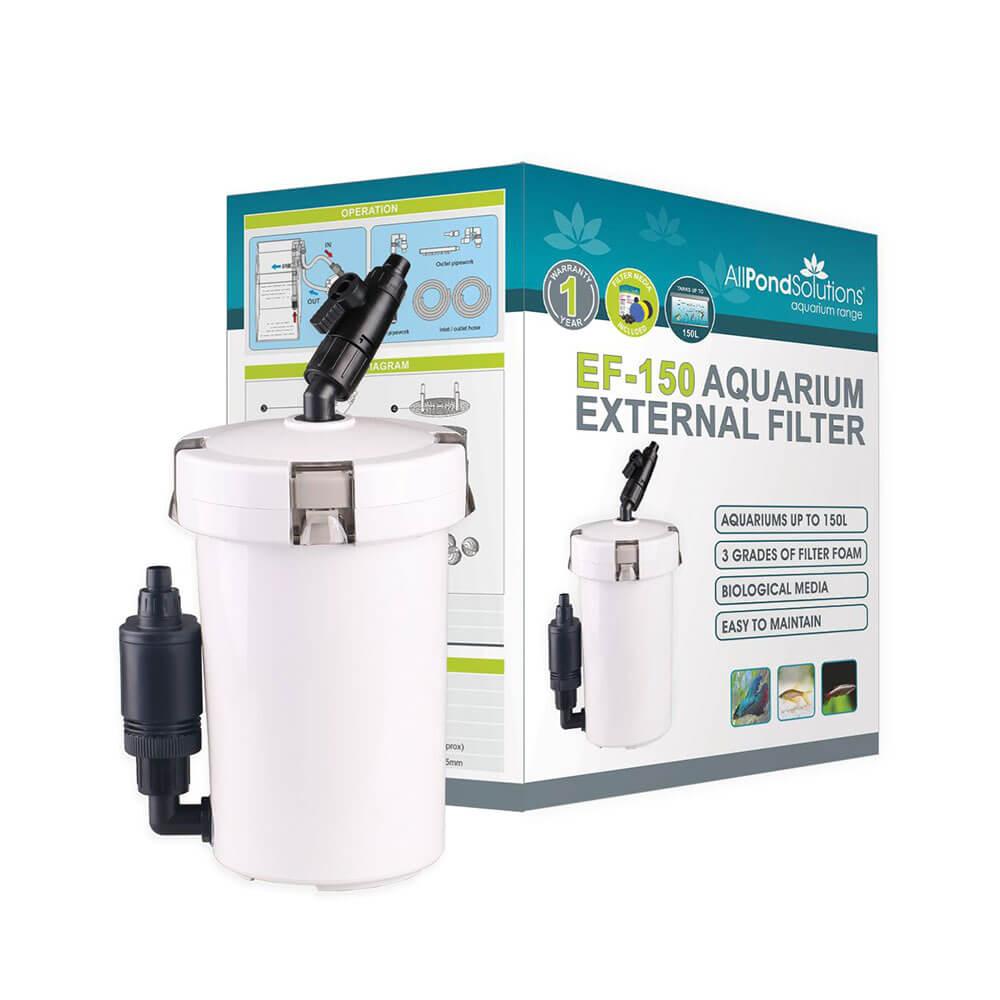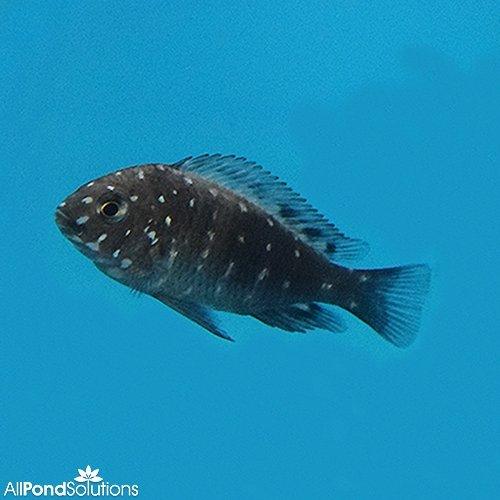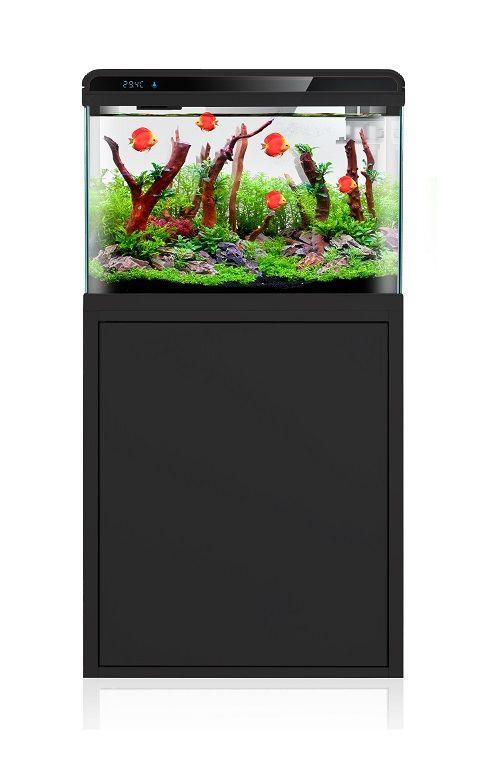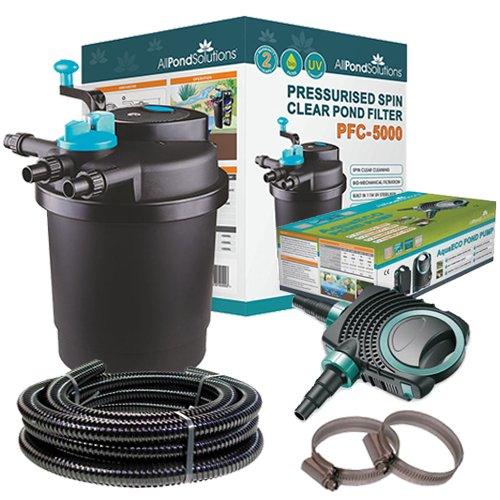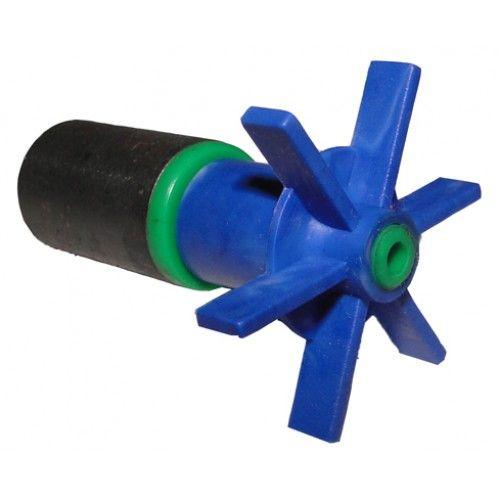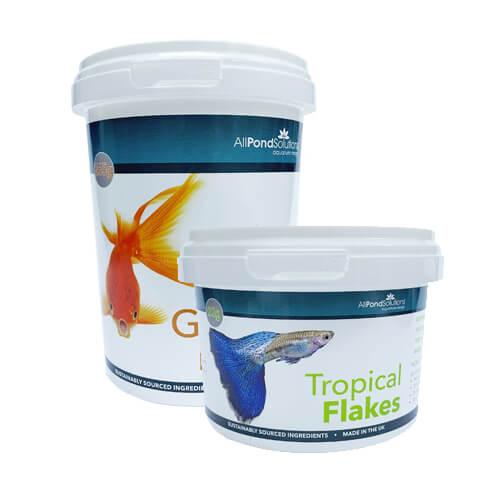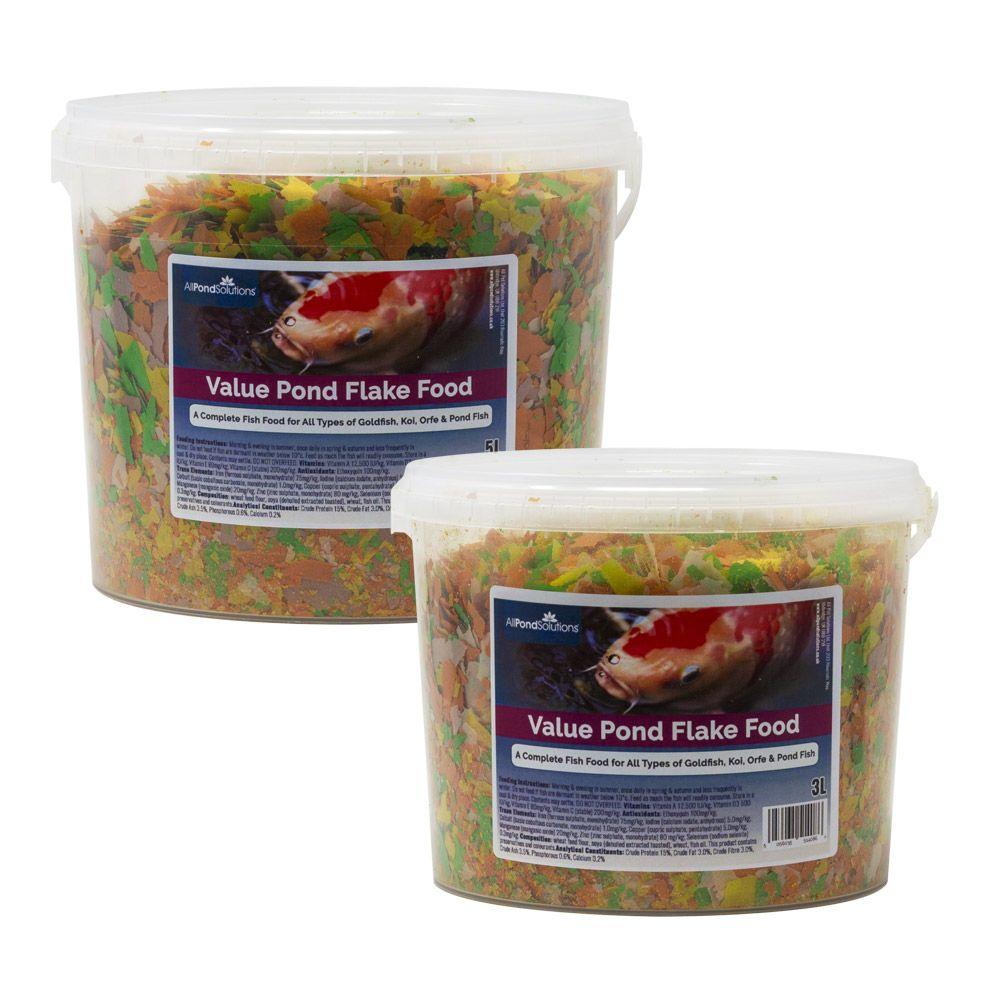Scientific Name: Tropheus duboisi
Please note – This species will be purchased as juvenile. Juvenile White-spotted Cichilds are all black with white polka dots. As they mature their appearance will completely change; they will have a blue face and solid black body with a thick yellow band around their middle.
Approximate purchase size : 5-6cm
All Pond Solutions will always endeavour to supply as close to the approximate size range as possible. Due to variations from suppliers on rare occasions this may not always be possible. Images used are to show the full potential of the fish when fully mature and are not always representative of juvenile specimens.
How hard are they to keep?
Easy
What is its maximum size?
This species can grow to be about 12cm
Where are they from?
Originally found in Lake Tanganyika.
What is the ideal number to keep together?
This species does not school in nature, and will usually fight amongst themselves in the aquarium, until a natural pecking order is established. However, in small groups, the fish may fight to the death. It is recommended to purchase a larger group (about 15-20) in order to reduce territorial behaviour. It is important to ensure that your tank is large enough.
What water conditions do they require?
Water conditions should be kept between 8.0-9.5 pH. Temperatures should range between 23-27°C
What should you feed them?
Diet should include vegetable flakes (spirulina) and a variety of frozen food.
How compatible are they with other fish?
Relatively peaceful towards other species. A very active species and should not be kept with shy fish.
Breeding:
Maternal mouthbrooder species. They spawn in open water over rocks. During spawning the female may either take the eggs into her mouth before they reach the substrate, or allow them to drop into spaces between the rocks before picking them up.
